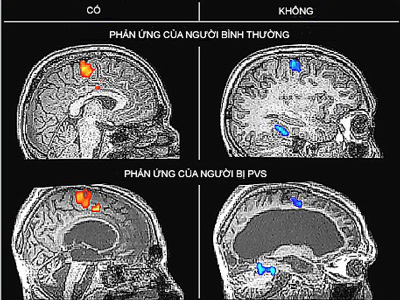Patients who live plants can
British scientists are shaken the world when they first 'chat' with a diagnosed patient who will be in a lifelong plant life.

Patients who live in plants are considered as a kind of clinical death because they completely lose their ability to communicate
Make a decision on your own destiny
The first patient to 'chat' was a 29-year-old male, who suffered a severe brain injury in a 2003 traffic accident and since then, lost consciousness, lost communication ability (PVS).
Dr. Owen's team used a brain scanner to read this patient's thoughts and used a device to record brain responses each time they asked questions. The patient answers 'Yes' or 'no' by conjuring up images that are symbolized by a specific brain reaction. Experts say the new breakthrough will "change everything" in the classification of consciousness disorders.
Dr Adrian Owen, of Cambridge University, said: 'They can make some decisions about their own fate.'
This is considered a breakthrough with great significance in the care and treatment for patients with loss of consciousness. Because of the ability to communicate, patients can require pain relief or even express a desire to end life.
Experimental process

Photos taken via fMRI
22 healthy volunteers participated in the study of the Cambridge Medical Research Council and colleagues at Liege University (Belgium). Functional magnetic resonance imaging (fMRI) is used to identify activities in two different brain regions including movement and spatial reaction while volunteers imagine the given images. Magnetism and radiation will detect the movement of blood vessels overflowing in each area of the brain.
With the task of 'moving', volunteers are asked to imagine standing in the tennis court and extending their hands to get the ball from the assistant. To activate the 'space' zone, they had to imagine themselves going from one room to another in the house.
In 4 patients, the camera detects activities in the corresponding brain regions as they perform the verbal instructions of the scientists. But in a 29-year-old patient, the brain's reactions were clear and therefore the next special test step was performed. It's scientists who tell this patient: use 'moving' brain region and 'space' to express 'yes' and 'no' answers. The results showed that patients answered correctly and voluntarily 5 of 6 questions. Specifically the questions: 'Is your father's name Alexander?' - the correct answer is 'True' by visualizing the scene of tennis. When asked: 'Is your father named Thomas?' , the patient answered: 'No' by thinking about walking around the house.
When asked to the 6th verse, no brain activity was recorded. According to scientists, it may be because the patient has fallen into deep sleep or simply lost the ability to hear the question.
Dr Owen said: 'We were surprised to see the results of the CT scan. These films not only show us that patients do not lose consciousness, but more importantly, for the first time in years, patients can communicate through thinking to the outside world. '
According to Dr. Owen, in the future, fMRI cameras will be an expensive tool and connected computers will help patients communicate with doctors like they need to take painkillers or try a new drug. However, only good 'practice' patients are able to carry out 'conversations'.
- 5 tips to help cancer patients stay healthy
- For the first time in the world: recovery for patients living plants
- Using vegetable oil, nuts are good for prostate patients
- Read the mind of the dead
- Non-photosynthetic plants discovered after 150 years
- New research on beverages helps HIV-infected patients live longer
- Live with plants in closed rooms
- The formula helps plants live longer
- Sex life of plants reveals disagreements between the sexes
- Coagulation disorders: The disease must live on someone else's blood
- Those who are not chlorophyll live in Vietnam
- Note 5 HIV-infected patients still live well without taking ARV every day
 Green tea cleans teeth better than mouthwash?
Green tea cleans teeth better than mouthwash? Death kiss: This is why you should not let anyone kiss your baby's lips
Death kiss: This is why you should not let anyone kiss your baby's lips What is salmonellosis?
What is salmonellosis? Caution should be exercised when using aloe vera through eating and drinking
Caution should be exercised when using aloe vera through eating and drinking